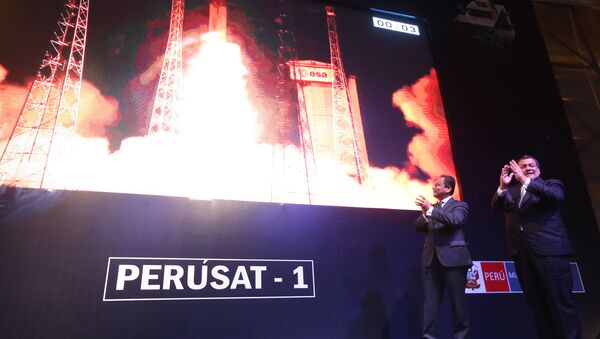He added that apart from infrastructure “a critical mass of specialists and forward-looking technology experts” was a fundamental factor in the development of a country’s space industry.
Gustavo Henríquez also emphasized that Peru was now in the forefront of the international effort to improve the quality and scope of satellite imaging of the Earth.
“Our satellite is the most powerful in the region but we know that we are still years behind our regional leaders [Argentina and Brazil] in other space-related areas,” he admitted.
Gustavo Henríquez said that Latin American countries were not competing against each other.
“We are cooperating on a country-to-country basis, just like Argentina and Brazil do. But now that Peru has this major satellite in orbit we looking for avenues of cooperation with countries that are of paramount importance to us,” he continued.
Venezuela and China are now working on a new generation of telecommunications and observation satellites and Mexico started using satellite imaging decades ago.
“The Mexicans have a station that receives images of the Earth’s surface from a number of observation satellites, and they also have telecommunications stations they obtained decades ago,” Henríquez said.
“[The problem is] that most of the money for space exploration in Latin America comes from state coffers. We hope that our private companies will eventually join in so that we could develop our own technology and knowhow instead of buying them abroad,” Gustavo Henríquez emphasized.






